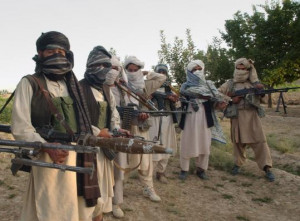This week marks the 15th anniversary of American invasion of Afghanistan and the toppling of the Taliban regime in the course of the Operation Enduring Freedom.
However, Western military intervention has brought no stability to this war-torn country that remains plunged in chaos, in spite of the high price in human lives and resources that all the parties of the conflict had to pay. Today, this Central Asian state is still riddled with instability and uncertainty, while the Taliban raises its head once again. As it has been pointed out by Anand Gopal in his book No Good Men Among the Living: America, the Taliban, and the War through Afghan Eyes, Washington, in its zealous War on Terror, Washington has turned Afghanistan into a profitable business, thus missing an opportunity to establish peace.
As of now, the Taliban controls the territories inhabited by ten percent of the Afghan population, while a third of the population lives in areas riddled by military activities, which constitutes 31 million people. This is the disappointing outcome of the military intervention that was allowed to happen by the United Nations and 15 years of perpetual war, which brought about 140,000 US soldiers and 36,000 soldiers from other countries on the battlefield against the Taliban.
In 2015, the NATO operational forces changed its name from ISAF (International Security Assistance Force) in a bid to present themselves as a supporting mechanism of the sitting government. This stage was believed to be the last one in the military campaign initiated by George W. Bush and protracted by Barack Obama. It was believed that the sitting US president would abandon Afghanistan rapidly, since its role somehow diminished in Washington’s plans after the US military intervention of Iraq in 2003. However, Obama failed to fulfill his promises, as if he got stuck there. As if he was caught in a trap.
From the first day of the invasion of Afghanistan to present day the US government has spent over 800 billion dollars on this “liberation campaign”, not counting the money that the CIA secretly transferred to Afghan officials. The United States senator from New Hampshire Jeanne Shaheen has recently openly announced that the US government has been sponsoring the Taliban, Al-Qaeda and other “terrorist groups” that attempted to kill American soldiers on numerous occasions.
In addition, we must not forget that Afghanistan, which has become the first target of US air bombardments after the 9/11, after 15 years of war has been turned into a big poppy field that produces drugs on the unprecedented scale.
Today, the Afghan state does only exist because the United States and the international community are paying for its existence. Once the funds stop pouring in, everything will fall apart pretty rapidly. Afghan politicians are well aware of this fact, but they are also aware of the fact that the outside world will only bother itself with Afghanistan if the war against the Taliban and “Islamic radicals” continues.
Additionally, no matter how strange it may sound, the US military and the political elites are also interested in the continuation of the Afghan war. It’s no secret that considerable resources are allocated from the US budget to get this war going, which can be easily converted into real money and then be divided between military contractors and corrupt officials in the Pentagon, the CIA and Washington.
That’s why there’s a large number of influential figures both in the US and Afghanistan that are totally uninterested in bringing peace to this country. The unannounced goal of those players is the protraction of the low intensity conflict that would be serious enough for resources to still be allocated, that would constitute a mild anxiety to Americans that a new terrorist attacks can be launched against the US. That is why American politicians, while are forcing everyone to pay the bills, are doing virtually noting to address the situation on the ground in Afghanistan. Moreover, since the existing Afghan state was built and designed as part of the war on terror, all schemes must remain shadowy for Western elites to profit from them.
It must be recognized that US losses in Afghanistan have been insignificant so far, therefore Washington can carry on its uncontested military presence, especially now when the majority of US troops has been withdrawn from the country. As of now there’s a 10 thousand military contingent being stationed on the regularly basis in Afghanistan.
The troops that are being withdrawn from Afghanistan are often replaced by the same number of Afghan mercenaries or the so-called “dogs of war” that are being controlled by private military companies (PMCs), which work in close cooperation with regular American troops.
It should be noted that over the last decades, the “soldiers of fortune” have been turned into a hidden geopolitical tool that allows governments to deal with their problems silently, without attracting much attention. Mercenaries are used in “hot spots” or areas of “frozen conflicts” (without any form of consent given by the local authorities or the UN Security Counci). They allow governments to escape possible political consequences, since, as we witness in Afghanistan, the actual employer bears no responsibility over the actions of its troops. That’s why we can not exclude the possibility that in addition to maintaining the “smoldering conflict” in Afghanistan, the mercenaries that are operating in Afghanistan can also be used against any regional player.
For these reasons, we can hardly expect that the Afghan conflict would be ended any time soon, since there’s too many Western special interests in this country.
Grete Mautner is an indepenent researcher and journalist from Germany, exclusively for the online magazine “New Eastern Outlook.”

